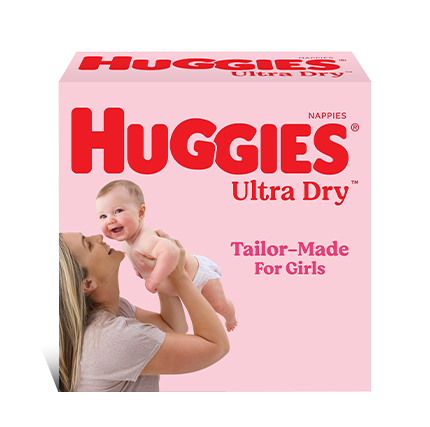You know it's important to eat well during pregnancy, but exactly what constitutes good food? Which foods will help your pregnant body to function well and support your baby to grow to its potential? It's easy to become confused when there is so much information around, particularly when a lot of it is conflicting.
Why should I be so concerned about what I'm eating?
Food is important at any time in our lives, but during pregnancy it does take on a whole new dimension. If you have always had a reasonably healthy diet and thought of food as a means of fuelling your body and maintaining your wellness, you probably won't need to make too many changes. However, if you've had a fairly relaxed attitude to your nutrition, eaten what you felt like and not invested too much thought into your diet, you will need to make some adjustments.
The food you eat during your pregnancy will have a direct effect on your sense of wellbeing, your energy levels, metabolic processes and your baby's growth and development. The ideal foods to eat will be those which are going to supply the iron, protein, calcium, vitamins and minerals needed for your own body, as well as your baby s. These foods will also need to be low in saturated- or trans-fats, be easy to digest and not pose a health risk to you or your baby.
Pregnant women who don't obtain sufficient nutrients from their diet are at risk of developing nutritional deficiencies. Other than Vitamin D, which we obtain from the sun, humans rely on their food intake to supply vitamins and minerals we need to function.
During pregnancy, it's important to avoid eating foods which could be
contaminated with Listeria. Eating soft cheeses, sushi, deli meats, salads, and undercooked meats can all pose a risk to pregnant women, unborn and newborn babies. Unwashed fruits and vegetables may be contaminated with Listeria as it can also be found in soil.
What If I don't worry too much?
Nature looks after babies when they are in their mother's uterus by ensuring they obtain what they need first from their mother's nutrition. When a pregnant mother is eating insufficient nutrients to meet both her own plus her baby's demands, she is the one most likely to miss out. Your baby will actually take nutrients from you to maximise its chances of survival. This is a hard but true fact of life.
Your nutrient requirements will be higher during pregnancy than at other times, so you will need to ensure you eat foods which are of a high nutritional quality. It is not so much the number of kilojoules you will need to increase as the nutrient content in your food.
Iron
- The primary source of iron is from red meat that contains haem iron. This helps in the formation of red blood cells which carry oxygen around your body and to your baby. Iron rich foods are red meat, eggs, chicken and good quality cereals.
- Vitamin C is needed to help with the absorption of iron into the body, so aim to eat some fresh citrus fruits each day as well.
- If you are vegetarian or vegan, you will need to ensure you are eating sufficient iron and protein as well. It can be difficult to obtain enough iron from plant sources alone so a supplement may be necessary. Speak with your maternity care provider or a dietician for specific guidance. Iron tablets can often lead to constipation so if this is a problem, increase your fibre and fluid intakes. You may need to experiment with taking your iron supplement at different times of the day or evening to minimise this side effect.
Protein
- Protein and iron rich foods stem from similar food groups. Both are high in animal sources particularly the flesh portions, such as meat and fish. Other sources are eggs, pulses and legumes, nuts, milk and dairy foods, brown rice and beans.
- Although protein foods tend to be more expensive, we don't need to eat much of them to obtain their benefits. You will need 2-3 servings of lean protein each day during your pregnancy.
- Protein is one of the nutrients which will help to satisfy your hunger. Protein takes longer to digest than a lot of other nutrients and will help you feel satiated (full) for longer. Aim to have some protein at every main meal of the day.
- Protein will help your body to function effectively, feed your baby's growing body and provide you both with amino acids. These are known as the building blocks of life because they are so vital for humans to function.
Calcium
- Calcium is essential for your baby's bones to form and ossify (harden). It is found in milk, all dairy foods, and soy products which are labelled as being fortified with calcium. Almonds, green leafy vegetables and fish with edible bones are also good sources.
- Calcium is one of the minerals which need to be eaten in sufficiently high levels during pregnancy to meet a mother and her baby's demands.
- The old saying that pregnant women loose a tooth for every baby is not true. This folklore probably related to the once high incidence of periodontal disease in pregnant women whose oral hygiene was not ideal. It wasn't helped either by an inadequate intake of calcium which wasn't enough for their body's needs. Now our understanding of pregnancy nutrition and oral health is better than it's ever been.
Vitamins and Minerals
- Vitamins A, B1, B2 B6, B12 and Vitamin C are all needed in extra quantities during pregnancy. Rich sources are orange or yellow fruits and vegetables, cereals, legumes and pulses, beans and peas. A moderate serving of a quality cereal, drenched in low-fat milk and served with fresh fruit will help to kick start your day with almost 1/3 of your daily requirement of each.
- Minerals such as iron, zinc and magnesium are all contained in fruits and vegetables as well. Green leafy vegetables such as cabbage, broccoli, beans, peas, squash, salad leaves, capsicum and zucchini are all good sources.
- Many vitamins and minerals cannot be stored by the body and need to be replaced every day by our diet. Look to eat living foods, with lots of colour and variety. Different textures which require lots of chewing could help to satisfy some of your cravings. If your teeth or gums or painful or interfering with your eating, check with your dentist.
- Vitamin D is essential for your body to be able to absorb calcium from your food. You will obtain vitamin D from the sun, but it's important to bear in mind sun-safe principles. A small amount of filtered sunlight each day on your arms and legs, before 10am and after 3pm will be sufficient. And don't forget to use a wide spectrum sun-block. Skin pigmentation often changes during pregnancy and this can increase susceptibility to skin changes.
Fibre
- Fibre cannot be absorbed by the gut and is a bulk forming agent which helps to relieve constipation. It moves the contents of the gut along and prevents constipation and other complications such as haemorrhoids.
- Good sources of fibre are fruits and vegetables, wholegrain breads and cereals, legumes and pulses. Ensure you have a good daily intake of water.
- Some fibrous foods such as bread need water to bulk up and move along the gut. Keep a water bottle handy and topped up through the day. If your urine is dark yellow or orange from mid-morning onwards, this could be a sign that you need to boost your fluid intake.
- Fibre sources such as oats and bran are also good for reducing cholesterol within the body and help support good cardio-vascular health.
Folate
- Folate is a nutrient which is found in green leafy vegetables, liver, poultry, legumes and peas. It can be difficult to eat a sufficiently high level of folate, even in a healthy diet. Folate helps to reduce the risk of neural tube defect in the developing embryo. This is why a daily supplement is recommended. Ideally, a folic acid supplement is taken one month before and for the first three months of conception.
- Folic Acid is the synthetic form of folate. The current recommendation is for women who are trying to conceive or who are in the first trimester of their pregnancy to look for a supplement which contains at least 400 micrograms of folic acid. These come in a tablet form and are available from pharmacies and can be taken alone or in combination form with other vitamins, minerals and iron.
- Fibre will help to support your own and your baby s healthy gut flora. Research has shown that a mother's diet during pregnancy plays a big role in this.
Carbohydrates
- Complex carbohydrates come from wholemeal bread, cereals, rice and grain. They will fuel your energy and help your baby to grow. Potatoes, beans, oats and corn are rich natural sources.
- Sweet, sugary foods will provide you with simple carbohydrates but they also tend to create a surge in insulin which, after an initial burst of energy, could leave you feeling flat and listless. Look for slower burning alternatives which will help to stabilise your blood sugar and support a steady and sustained level of insulin in your blood.
Iodine
- Iodine is an important mineral for the development of your baby's brain and nervous system. None of us need very much but without it, there can be significant problems with thyroid function.
- The current recommendation is for all women who are planning a pregnancy, are pregnant or who are breastfeeding to take a daily iodine supplement of 150 micrograms each day.
Fluids
- Water is the perfect drink during pregnancy. It contains no calories, quenches the thirst, is readily available and free. It is also difficult to drink too much of it. The problem for many women is though, they don't like it because it doesn't taste like anything. Flavouring water with some lemon or lime juice and adding crushed ice is an option.
- All alcohol needs to be avoided during pregnancy because it crosses the placental barrier and could potentially affect your developing baby's brain and nervous system.
- Large amounts of caffeine can lead to miscarriage so try to minimise your caffeine intake to under 200mg of caffeine each day or one cup of coffee. Chocolate, energy and cola drinks also contain caffeine so include them when looking at reducing your daily caffeine intake.
Treats
- Eating and enjoying the occasional treat is important in a balanced life. When we constantly deprive ourselves of the pleasure of eating particular foods, it makes us feel miserable. If you want to eat a piece of cake, biscuits or have a bowl of ice-cream go for it. Don't spoil the pleasure by feeling guilty or that you're doing yourself or your baby any harm.
- Think about what treats are worth having and what will just make you feel empty and wanting more. Homemade treats generally taste better than store bought ones, watch how much you pile on your plate, eat slowly and enjoy the taste and flavour of what you're eating.
Last Published* May, 2024
*Please note that the published date may not be the same as the date that the content was created and that information above may have changed since.




















